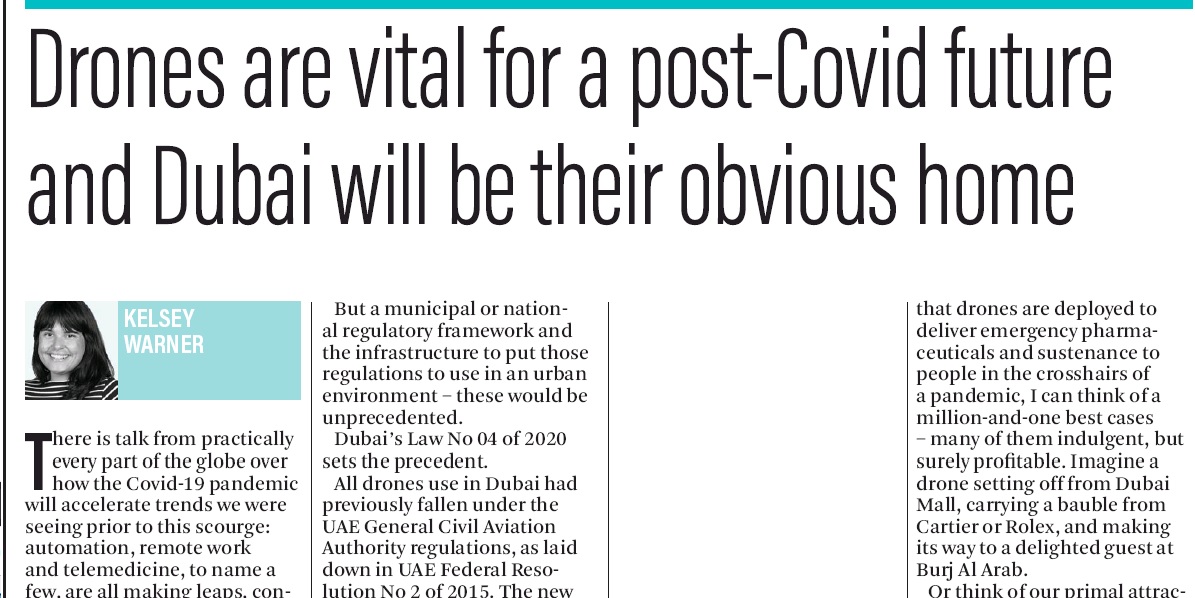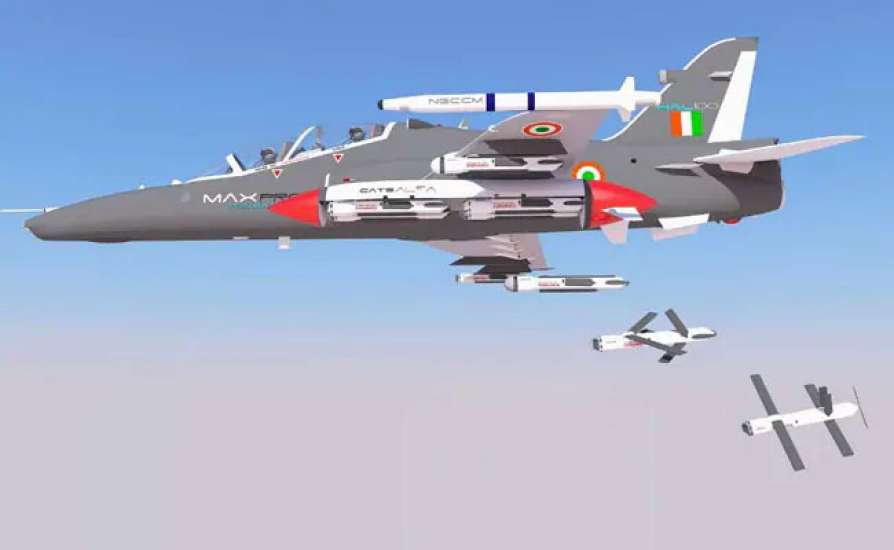As policymakers across the globe struggle with how to define and implement regulations for future commercial drone services, the new Dubai drone law could help turn the emirate into an R&D hotspot.
Policymakers have long been struggling with how to introduce laws to govern future commercial drone services. Whilst high profile drone delivery trials and flying taxi test flights take place around the world with increasing frequency, all such activities are authorised via exemptions to prevailing aviation and unmanned aerial vehicle (UAV) laws. Manufacturers and drone services startups have been able to test their concepts, but not finish their business plans. Even where laws have been drafted, like the EU, implementation has dragged.
Therefore, the announcement that Dubai has issued a comprehensive new law to govern the development of the drone industry and commercial drone services is welcome news for drone firms. As the CEO of one international drone delivery services company commented last week, ‘the devil is in the detail’, but the passing of the new law has been bolstered by the Dubai Civil Aviation Authority (DCAA) announcement that much of the expertise, process and systems required to implement regulations have already been developed.
DCAA has already invested in technology to underpin a Dubai Sky Dome initiative, which will create a virtual airspace infrastructure and ecosystem for commercial drone use. Meanwhile, Dubai Aviation Engineering Projects (DAEP) will set specifications, standards and conditions for new drone infrastructure, in order that private operators can take the initiative and build their own drone airports.
Dubai’s drone law makes it clear that the all parts of the ecosystem are to be supported and regulated, to include manufacturing, imports, distribution, drone services and skills. With safety concerns at the fore, the UAE has already regulated the import, sale and manufacture of drones and so provides a safe market for manufacturers, largely free from fakes and grey market imports. The combination of these factors means that we can expect high standards to be set for the future development of the sector and skills to be at a premium.
Now Dubai has the law to govern the development of a drone services sector and a strategy to develop and manage the drone ecosystem, the emirate is better positioned to attract investment and drive innovation. So, where are the opportunities?
Rapid development in drone technology over the past few years has already given rise to a number of Dubai-based startups providing devices, specialised services and software systems. A limiting factor has been that regulation has not allowed drones to fly in public city spaces or ‘beyond line of sight’. When these factors change, this will pave the way for a wide variety of drone services.
Obvious opportunities for a new drone delivery services market include the manufacture of drones and drone parts, development of drone control and operation systems, security of drone aircraft and systems, training and certification, construction of drone airports, repair and maintenance, plus the operation of the delivery services themselves.
There are also a variety of industry sectors that could provide opportunities for drone delivery services. It is well known that Dubai has a highly advanced logistics industry, including a number of global logistics firms that are already testing drone delivery in Europe and the U.S. Dubai’s thriving ecommerce and home delivery market is another obvious candidate for drone delivery, given Amazon’s investment in developing delivery drones and services.
However, just as some of Dubai’s existing specialised drone services have built businesses on serving the needs of verticals such as oil and gas, construction and surveying, new drone delivery services could serve different niche markets too. Medical deliveries have been in the spotlight during the past few months, as drones have been used in some part of the work to make contactless deliveries of urgent medical items. In addition to the healthcare sector, there are potential requirements for drone delivery across range of industries such as automotive, construction, engineering, government, real estate and Dubai’s diverse services sector.
Besides the drone delivery market, the RTA’s plans to introduce flying taxis may clear the way for more investment in passenger drones. The RTA has already been in talks with a number of different potential partners and conducted a high profile flight test with German aircraft manufacturer Volocopter in 2017.
Some of the most exciting opportunities may well have yet to be identified. Without regulation and air space control, there can be no development of a strong, fully functioning drone services sector and, without that, both R&D and market development cannot really move forwards. If Dubai can move quickly to kick-start this sector, then real world trials, service launches and new customer requirements will, no doubt, help fuel innovation.
This story first appeared on SME10x.com.




